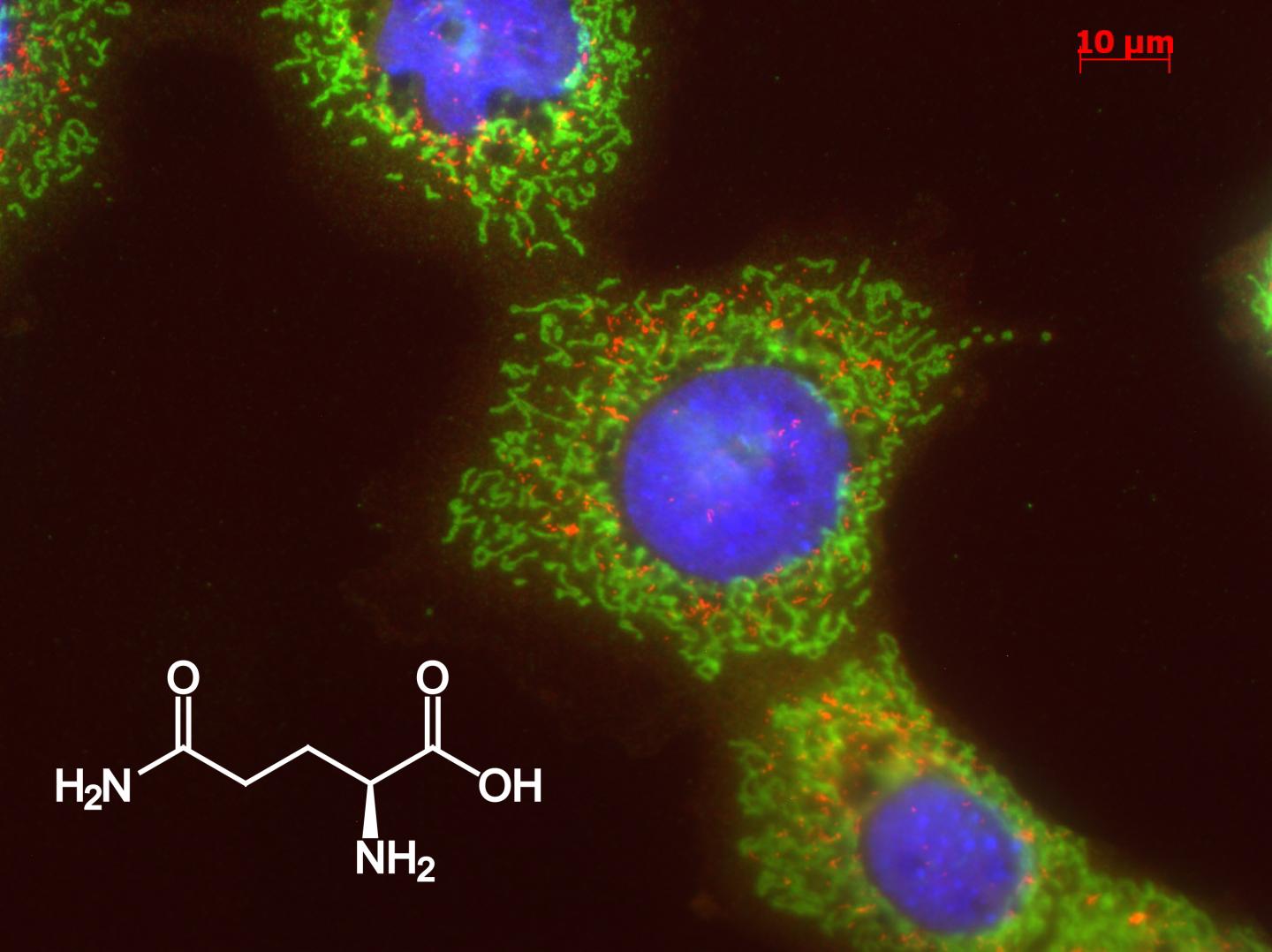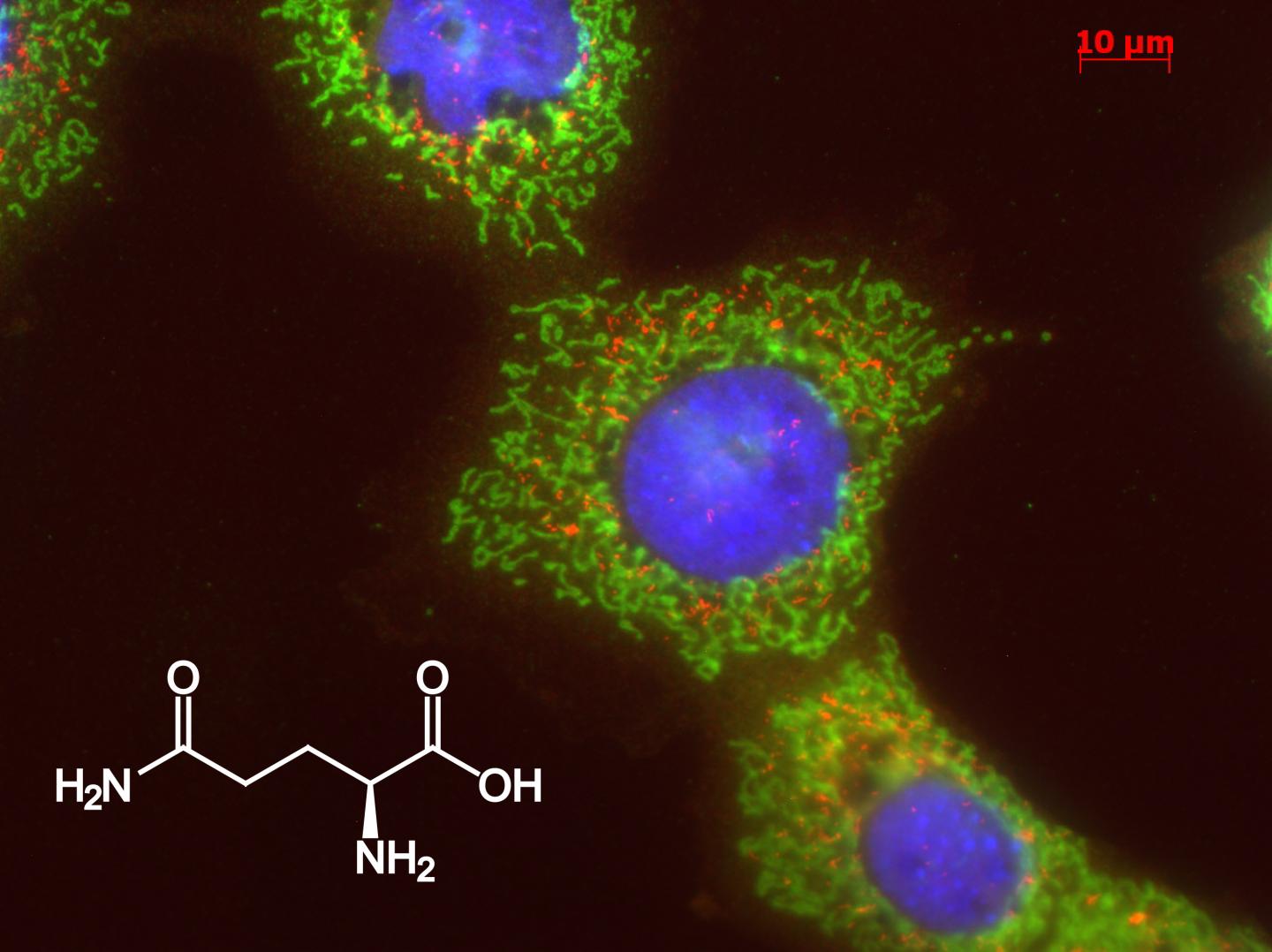
Scientists at EPFL have found a way to starve liver cancer cells by blocking a protein that is required for glutamine breakdown — while leaving normal cells intact. The discovery opens new ways to treat liver cancer.
Primary liver cancer is the second leading cause of cancer-related deaths worldwide, with current treatments being very limited. Liver cancer cells are particularly addicted to the amino acid glutamine, which fuels their proliferation. EPFL scientists have now found that a liver protein called “liver receptor homolog 1” (LRH-1) is responsible for the digestion of glutamine into smaller molecules, which are avidly consumed by liver cancer cells. Therefore, blocking LRH-1 causes cancer cells to starve and greatly reduces the development of liver cancer in mice, while preserving normal cells. The discovery is published in Genes & Development, and can introduce new drugs that target LRH-1 to effectively treat liver cancers.
LRH-1 is a receptor in the cell nucleus, where it regulates the expression of various genes. In this study, scientists from different groups at EPFL led by Kristina Schoonjans, discovered that LRH-1 coordinates several key genes that are involved in the metabolism of glutamine — an amino acid to which liver cancer cells become addicted. The researchers found that LRH-1 drives the development of liver tumors by helping cancer cells to convert glutamine into molecules that are directly needed for proliferation.
This would also mean that disrupting the function of LRH-1 in the liver of mice would protect against the development of liver cancer. That is exactly what the scientists found when they studied mice that had been genetically modified to not express LRH-1 – so called “knockout” mice. After exposing them to chemical carcinogens, the livers of knockout mice showed dramatically less development of tumors. “Shutting down this pathway by inhibiting LRH-1 abrogates the utilization of glutamine as a fuel and brings the cancerous cells in tremendous metabolic distress,” says Pan Xu, the first author of the study.
Based on the study, LRH-1 could be a new drug target to prevent the development of liver cancer. Because cancer cells, unlike normal cells, are very often addicted to glutamine, drugs that inhibit glutamine metabolism have been proposed as new highly efficient chemotherapy agents.
“Inhibiting LRH-1 can thus be an effective way to starve only liver cancer cells, while leaving normal cells intact,” says Kristina Schoonjans. Her lab is now actively trying to identify new chemotherapeutic agents to treat liver cancer by developing specific compounds that inhibit LRH-1. The researchers also hope that these findings may extend to other types of cancer, since LRH-1 is also abundant in the pancreas and ovaries.
###
This work involved a collaboration of Kristina Schoonjans’ lab with EPFL’s Institute of Bioengineering and Institute of the Physics of Biological Systems, and the University of Groningen. It was funded by EPFL, the Swiss Cancer League, the Swiss National Science Foundation, and the Novartis Consumer Health Foundation.
Reference
Xu P, Oosterveer MH, Stein S, Demagny H, Ryu D, Moullan N, Wang X, Can E, Zamboni N, Comment A, Auwerx J, Schoonjans K. LRH-1-dependent programming of mitochondrial glutamine processing drives liver cancer. Genes & Development 13 June 2016. DOI: 10.1101/gad.277483.116
Media Contact
Nik Papageorgiou
[email protected]
41-216-932-105
@EPFL_en
http://www.epfl.ch/index.en.html
The post Starving cancer cells by blocking their metabolism appeared first on Scienmag.





